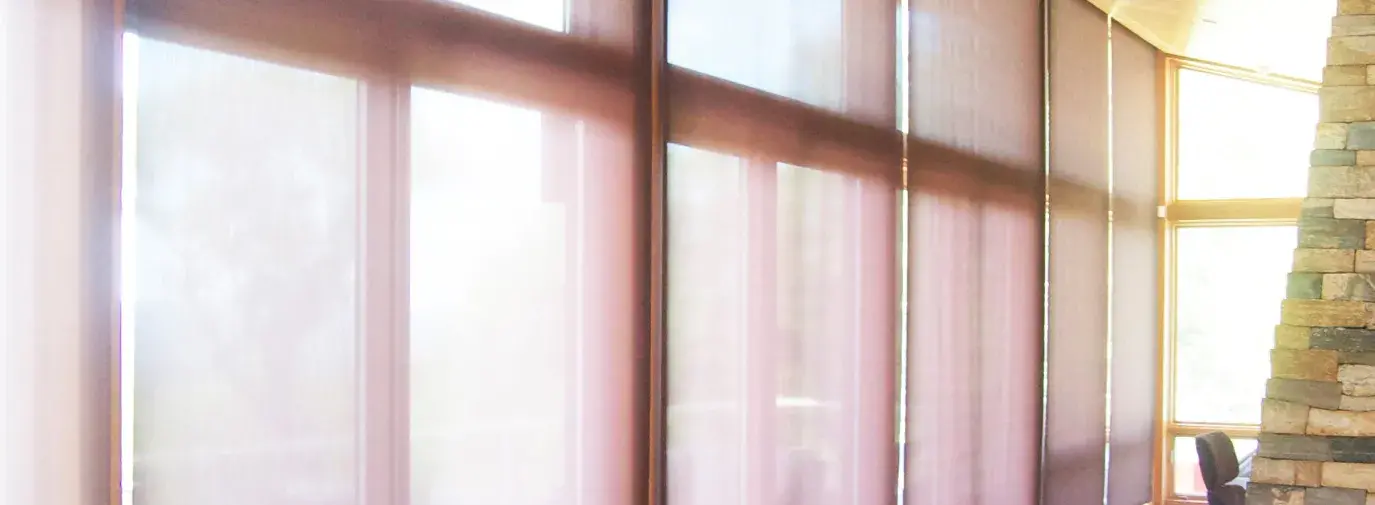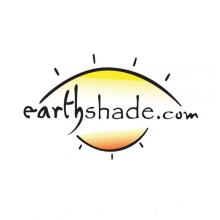
Contact Earthshade Natural Window Fashions: Website | YouTube
If you have conventional window shades, they could be making you sick. C.W. Swanson originally worked for a major window fashions dealer. While on a service call, he realized that the older vinyl shades he was working on still gave off the same strong chemical odors years after installation that the new shades he installed day after day emitted. The persistent smell made him curious, so he started researching. He discovered that vinyl, also known as polyvinyl chloride or PVC, is highly toxic throughout its lifecycle. Making and incinerating vinyl at disposal generates carcinogenic dioxin, and vinyl often releases hormone-disrupting phthalates during use.
Even fabric shades could have toxicity issues, he found, since companies may treat both fabric and vinyl shades with chemicals to repel water, mold, sun-bleaching, and stains. Manufacturers may add toxic heavy metals, untested nano-finishes, and carcinogenic formaldehyde to their products, along with chemical fungicides and UV protectants.
“[I discovered the] emerging ties between basic household items, indoor air quality, and quality of health or life,” says Swanson, who was very surprised to discover that such commonplace items could cause severe health problems.
Swanson says that in his experience, many retailers do not know the origins of or ingredients in the treatments used on the materials they receive from manufacturers. Plus, he says, “Import and trade laws often add another level of potential exposure [to chemicals] through often-required fumigation of certain raw materials.” Raw materials such as woods, bamboo, reeds, grasses, etc. are often fumigated for insects, molds, and mildews when they are imported to the US.
In addition, he says, “most of the third-party rating systems [for window coverings] fail to test products under the true operating circumstances such as sunlight,” he says, noting that heat and light can cause certain chemicals to offgas from some window-covering materials.
So in 1999, Swanson decided to put his research skills toward finding nontoxic window covering alternatives, and he founded Earthshade Natural Window Fashions.
While at a trade show, he met with a man representing a family with three generations of experience in fabric weaving and creating textile products by hand. The two joined together to make Earthshade the natural and chemically sensitive company it is today.
Earthshade Natural Window Fashions has three lines of shades: HappyShades Roman shades, SafeShades roller shades, and Better-Blinds mini- and Venetian blinds. All are low-emission or synthetic-chemical-free.
The company creates HappyShades Roman shades from natural materials, including untreated grasses, reeds, bamboo, and other fibers. It sources these materials from as close to where they will be woven together as possible, directly from farms or small villages in places like Central and South America and Vietnam. Earthshade often works with the indigenous populations of these areas, sometimes creating new sources of income by buying strong, untreated grasses whose only purpose previously was to control erosion.
As a testament to their all-natural make-up, all HappyShades products are compostable when they reach they end of their service life.
“The compostability at the end of the service life is truly a remarkable achievement, as there is no other shading product in the world (We look for others on a regular basis!) that has been tested for compostability,” claims Swanson.
The SafeShades line came into existence after years of the company being asked by green-minded architects to create less-toxic roller shades for schools, hospitals, airports, and other places. SafeShades roller shades come in varieties for light blocking, heat reduction, privacy, insulation, noise reduction, and more. SafeShades are made from polyester, recycled polyester, or a mixture of polyester and cotton. Polyester is an easy-to-clean fabric and lasts for many years, making it practical for schools and hospitals.
The reason Earthshade held out against roller shades for so long was due to the high emissions from conventional roller-shade polyesters.
“Today, all the fabrics we use average many hundreds of parts per million lower in emissions than anything else that’s out there,” says Swanson.
Earthshade also makes mini and Venetian Better-Blinds using recycled aluminum and “minimal plastic”. The slats for Better-Blinds are uncoated.
95 percent of the HappyShades and 50 percent of the Safe-Shades line is suitable for people with chemical sensitives.
Since Earthshade is committed to making its products last a long time, it will send customers replacement parts or walk them through do-it-yourself repair procedures to keep its window coverings in working order. But Swanson is quick to promise that Earthshade products don’t often need repairs.
Selling products through select retailers in seven states or via online mail-order, in a “highly personable and detailed manner,” Earthshade Natural Window Fashions has stayed true to its mission of providing window treatments that are as unique and safe as possible. And that comes from being authentic, which Swanson highly values.
“We want to be transparent,” he says. “We want to tell people what something is rather than what it’s not because we feel people deserve at least a basic level of respect. So authenticity, absolutely.


